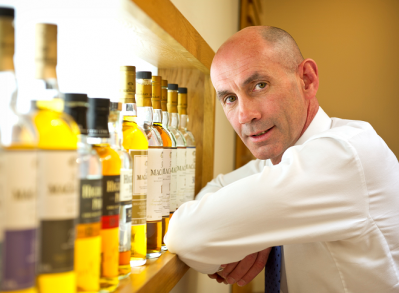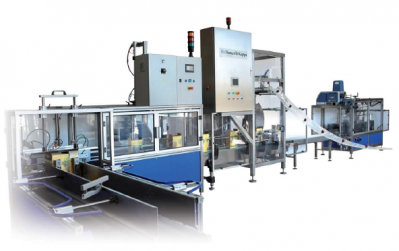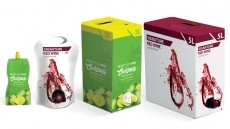‘Breakthrough’ lightweight glass helps Famous Grouse fly

The Scottish distiller, which turned over £553m in 2010, said it had developed a ground-breaking prototype weighing only 340g, which it claimed as a technical first in the bottling industry.
The bottles will be launched via Edrington’s flagship Famous Grouse brand – others in the company's stable include Highland Park, Cutty Sark and Brugal – within Scottish supermarkets this autumn.
The distiller predicts that the new glass bottles will save it over 2,160 tonnes of glass a year, and could save over 58,000 tonnes if its innovation were rolled-out across Scotland’s whisky industry.
Edrington partnered bottle maker Owens-Illinois (O-I), Smurfit Kappa (for wraparound cases), Chesapeake Hilton (labels) and Zero Waste Scotland to achieve the weight reduction, which it said was not previously thought possible in the production of premium spirits bottles.
Whisky packaging strategy
Mike Rose, Edrington’s director of technical services, told FoodProductionDaily.com that the bid to cut glass use by 14 per cent formed part of a wider core packaging reduction strategy that the firm was undertaking with the Scotch Whisky Association.
Asked about the project's technical challenges, he added: "Firstly we had to convince manufacturing experts that it was worth attempting this, and once they were fully engaged the key issue was to control glass distribution around the body of the bottle, such that there was sufficient glass thickness and strength in the principle contact areas (shoulder, heel and spotting bar)."
Rose added: "This is vital for manufacturing efficiency in the bottle-making plant, but also for safe and efficient running in the bottling factory and throughout the supply chain. We have had to set new tolerances for glass wall thickness, but have not had to compromise on strength."
Edrington set out to prove that it was possible to produce a glass bottle under 400g (340g compared to the closest competitor bottle at 380g) that still supported premium features like engraving and embossing, and could cope with production line speeds of up to 600 bottles per minute.
Rose said: “It was a stern test for the new bottle, but it ran successfully through all of the processes without any hitches or breakages. Now that we have a prototype, tests are underway to see whether it is feasible to roll out the new bottle across our products.”
“For us, this wasn’t about cost saving. It was more about our commitment to achieving our environmental objectives as an organisation,” Rose said.
Quizzed as to potential consumer concerns about the safety of thinner glass, Rose said that Edrington "would never take any risks".
"That is why we are currently testing the concept of using lighter packaging. We are going to test the bottle in the UK and also a few international markets to see how it performs," he said.
The principal challenge was maintaining the same quality of detail on the bottle, in terms of its embossing and shoulder, Rose added.
Zero Waste Scotland
Edrington’s prototype was unveiled at the Scottish Waste and Resources Conference in Glasgow where business help organisation Zero Waste Scotland announced a £500,000 government investment fund for innovations that encourage businesses to target ‘zero waste’.
The fund is aimed at developing new innovations in product and packaging design “with the potential to be scaled-up to achieve significant resource and carbon savings”.
A Zero Waste Scotland spokeswoman told FoodProductionDaily.com that Scotland’s ‘zero waste’ plan was a Scottish government scheme aimed at achieving 70 per cent recycling by 2025, with a maximum of 5 per cent of waste sent to landfill.
She said: “Food product and packaging innovation is a great example of the kind of area where we’d like to make progress. We’re looking towards entrepreneurs or people [to give funds to] with a feasible idea, which is at a point where they can produce a prototype and we can conduct a feasibility study.”
Scottish environment secretary, Richard Lochhead, said that the investment would “ensure Scotland is at the forefront of efforts to achieve zero waste, both at home and internationally”.
He added: “Forecasts suggest that future innovation and technology developments could be worth an additional £8.4bn to Scotland’s low-carbon industries by 2015 and create up to 100,000 jobs.”
“Innovation is vital if we are to become a zero-waste society. New technologies can help us reduce our reliance on natural resources and enable us to create value from the existing materials we use.”











